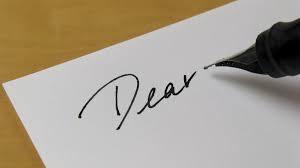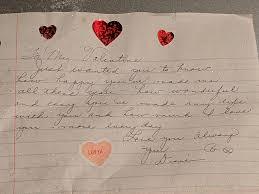Don't press send ... The new rules for good writing in the 21st century
theguardian.com
12 ideas
·8.19K reads
31
1
Learn more about communication with this collection
How to set achievable goals
How to manage time for personal and professional life
How to avoid distractions
Letters Of Complaint
Be polite. The person who gets your letter will seldom be the one who wronged you. And is unlikely to pass it on to the desired recipient if you are insulting and raging.
Make plain how you’ve been inconvenienced, then propose what’ll seem to your correspondent a reasonable and proportionate redress that’s within their power to make. And be sure to phrase your redress as a request instead of a demand.
449
1.07K reads
Letters To Friends
Always remember that your job, writing to a friend, is to entertain. That can mean revelling in the odd pratfall. So, don’t just write about the mundane and pleasant things, try to give them the whole picture and make them feel something.
422
974 reads
Letters Of Condolence
- You are extending respect and friendship. Write quickly, and preferably by hand.
- You’ll want to calibrate what you write to your relationship both with the recipient and with the deceased. Make it personal.
- If you knew the deceased well, sharing a couple of warm memories will let the recipient feel there’s a shared bond.
- If you didn’t know the deceased, you can make respectful reference to what you knew of them.
- Use tact. Don’t tell the recipient how they should be feeling.
- If you’re finding it hard to know what to say, you can acknowledge that; but don’t harp on it.
- Avoid operatic, or competitive, expressions of grief.
- Acknowledge, but don’t belabour, the grief and pain they feel.
- Focus on the individual excellence of the deceased rather than the consequences of the loss itself.
- Be tactful of their religion even if you don’t believe in it.
410
569 reads
Love Letters
The love letter is about attention. You’re being your best self – most alive to the world, most engaged with the other – so that the attention you’re paying to them becomes a fantastic compliment.
Some say that what makes a relationship work is not how you feel about the other person, but how they make you feel about yourself. Be sure to include that in your letter and to show that you are intoxicated with them.
464
1.01K reads
Writing For Digital
- Keep up to date as language changes fast on the Internet.
- Digital writing is about getting and retaining attention as different digital information sources are constantly vying to capture it.
- Pictures go further than text alone.
- Emotional content – anger, humor, curiosity, astonishment – is particularly effective.
- Keep in mind relatable things and things that people like to do together.
432
652 reads
- Take a moment to consider how your email will be received and if your tone and style are appropriate to the receiver and the situation.
- Emailing strangers asks for the same level of formality as a paper-and-ink letter.
- Friendly is fine; presumptuous is risky.
- Flagging emails “urgent” to outsiders is presumptuous and negates email’s main benefit of letting people respond in their own time.
- If you need a quick answer make it clear in the email.
- Don't request a read receipt.
428
690 reads
Social Media
- Tone often fails to travel online. Irony, self-mockery or dark humor can easily be parsed as bigotry for example.
- You have multiple potential audiences, some will not be sympathetic. Even on closed websites, you should consider how your words would be perceived by outsiders.
- Things are unlikely to disappear on the Internet. Post in haste; repent at leisure.
- Don’t always be on transmit: social media are set up for conversation. Ask questions. Respond to people.
- Your tone will set the tone of the conversation. Fury tends to invite fury. Reasonableness tends to invite reasonableness.
- Be funny, if you can. It wins people over.
- Reposting praise turns people off; only repost insults and abuse. People enjoy reading those more in any case.
- Don’t forget the people can sue you for your words.
445
692 reads
Speak To Your Audience
Forget what you know and want. Everything, from the shape of your argument to the choice of vocabulary, should be governed by your audience’s receptivity.
The key principle of persuasive writing is customer service. Ask what they do and don’t know about the subject, and what they need to. Ask what they are likely to find funny. What are the shared references that will bring them on board? Where do you need to pitch your language? How much attention are they likely to be paying?
419
519 reads
Be Clear
Plain English (the simplest word that does the job; straightforward sentences; nice active verbs etc) is far from the only style you should have at your command. But the plainer the language, the easier the reader finds it and the more likely they’ll take in your message.
416
553 reads
Be Correct
Language changes according to usage and there’s no referee or court of appeal. With some nonstandard usages increasing the expressive range of the language and its precision.
All that being said, many readers place a premium on “correctness”, or the idea of it. Besides, it implies intellectual authority, and it’s the best way to communicate in formal situations.
384
437 reads
Simple Sentences
English audiences prefer short sentences and a subject-verb-object order.
Avoid a huge series of modifying clauses and parenthesis before you reach the subject of the sentence, else the reader’s brain will be working harder to make sense of the sentence. Meanwhile, you’re distracting it by cramming ever more material into its working memory.
418
505 reads
Read It Aloud
Most of what gets described as “good writing” is so described because – one way or another – it sounds right. It flows and slows when it should, the stresses fall naturally on the words that the writer wants to emphasize and the reader doesn’t stumble over unintended internal rhymes or clumsy repetitions.
Reading something aloud is a good way of stress-testing it: you’ll notice the rhythm more. Also, you’ll notice very abruptly if your sentences are too long or confusing.
397
513 reads
CURATED BY
More like this
Read & Learn
20x Faster
without
deepstash
with
deepstash
with
deepstash
Access to 200,000+ ideas
—
Access to the mobile app
—
Unlimited idea saving & library
—
—
Unlimited history
—
—
Unlimited listening to ideas
—
—
Downloading & offline access
—
—
Personalized recommendations
—
—
Supercharge your mind with one idea per day
Enter your email and spend 1 minute every day to learn something new.
I agree to receive email updates












